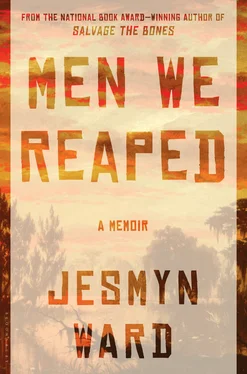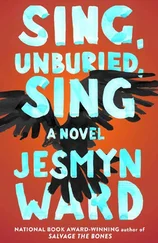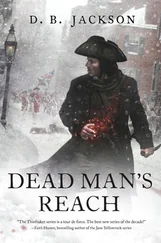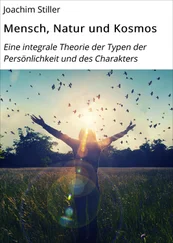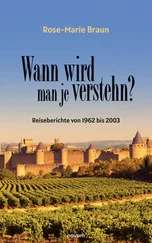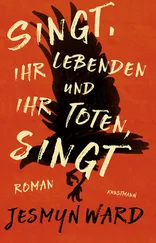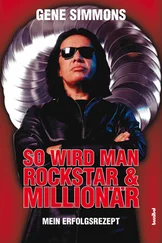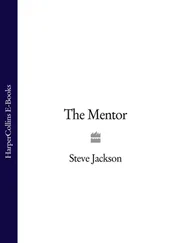We rode away from St. Stephen’s, away from the house, away from the cluster of houses of our Black neighborhood, out into the White outskirts of DeLisle, toward the bayou and over the bridges, the water shimmering silver in the night, the grass black. My brother played the song over and over again, and all that we’d been and become sat with us like another sibling in the passenger seat. We rode through Pass Christian, down to the beach, along Scenic Avenue, where he would die months later, so we could see the Gulf stretching out over the horizon, the sands white as tombstones. I looked away from Josh and out of the window so he couldn’t see my face, and I cried as we rode, thinking of our mother, our father, Charine and Nerissa and him. I wiped my face and was ashamed, but Josh didn’t say anything. He drove us away from the beach and back up through Pass Christian, through the bayou, past St. Stephen’s, and up into the country, away from all the houses, all the lights, so we rode alone under the black bowl of the sky, the stars’ fire so cold, so far away. Here, a dark horse and a white horse fed on grass at the side of the road, and when we passed them, they were dim and ghostly, hardly there. Vines grew over the limbs of trees and over the power lines, hung down into the street lamps, so the leaves of the vines gleamed like Christmas lights. The wind pushed our chests with a firm hand into the seats of the car. We rode like we could drive far and long enough to out-run our story, what Ghostface said: To all the families that went through the struggle . But in the end, we could not.
I don’t ride with anyone like that anymore. When I hang out with my male cousins, with Rufus or Broderick or Donnie or Rhett or Aldon, or with my friend Mark, I do ask them to drive, but it’s not the same. When we ride through the roads that cut through the forests of DeLisle, sometimes I close my eyes and take another drink and feel the wind again like a hand on my face, and I think about Joshua, and then the man who drives, who could be my brother, tall and solemn in the driver’s seat, right hand looped casually over the steering wheel, becomes him, and for a moment my brother is there next to me, navigating, leading. And then the wind buffets my eyes open, and the trees shiver darkly at both sides of the road and the air smells of burning pine needles, and I open my eyes to what is.
When Joshua died, he took so many of our stories with him. My sisters are too young to remember them. They cannot see the full enormity of what happened because they did not live what we did. I write these words to find Joshua, to assert that what happened happened , in a vain attempt to find meaning. And in the end, I know little, some small facts: I love Joshua. He was here. He lived. Something vast and large took him, took all of my friends: Roger, Demond, C. J., and Ronald. Once, they lived. We tried to outpace the thing that chased us, that said: You are nothing . We tried to ignore it, but sometimes we caught ourselves repeating what history said, mumbling along, brainwashed: I am nothing . We drank too much, smoked too much, were abusive to ourselves, to each other. We were bewildered. There is a great darkness bearing down on our lives, and no one acknowledges it.
We who still live do what we must. Life is a hurricane, and we board up to save what we can and bow low to the earth to crouch in that small space above the dirt where the wind will not reach. We honor anniversaries of deaths by cleaning graves and sitting next to them before fires, sharing food with those who will not eat again. We raise children and tell them other things about who they can be and what they are worth: to us, everything. We love each other fiercely, while we live and after we die. We survive; we are savages.
When I was twelve years old, I looked in the mirror and I saw what I perceived to be my faults and my mother’s faults. These coalesced into a dark mark that I would carry through my life, a loathing of what I saw, which came from others’ hatred of me, and all this fostered a hatred of myself. I thought being unwanted and abandoned and persecuted was the legacy of the poor southern Black woman. But as an adult, I see my mother’s legacy anew. I see how all the burdens she bore, the burdens of her history and identity and of our country’s history and identity, enabled her to manifest her greatest gifts. My mother had the courage to look at four hungry children and find a way to fill them. My mother had the strength to work her body to its breaking point to provide for herself and her children. My mother had the resilience to cobble together a family from the broken bits of another. And my mother’s example teaches me other things: This is how a transplanted people survived a holocaust and slavery. This is how Black people in the South organized to vote under the shadow of terrorism and the noose. This is how human beings sleep and wake and fight and survive. In the end, this is how a mother teaches her daughter to have courage, to have strength, to be resilient, to open her eyes to what is, and to make something of it. As the eldest daughter of an eldest daughter, and having just borne a daughter, I hope to teach my child these lessons, to pass on my mother’s gifts.
Without my mother’s legacy, I would never have been able to look at this history of loss, this future where I will surely lose more, and write the narrative that remembers, write the narrative that says: Hello. We are here. Listen . It is not easy. I continue. Sometimes I am tireless. And sometimes I am weary. And when I am weary, I imagine this: After the moment I die, I will find myself standing on the side of a long, pitted asphalt road flanked on both sides by murmuring pine trees, under a hot, high sun in a blue sky. In the distance, I will hear a rumbling thumping, a bass beat. A dull blue ’85 Cutlass will cut the horizon, come growling down the road before stopping in front of me. It will stop so quickly the gravel will crunch, and then my brother will swing the passenger door wide with one long tattooed arm, the other on the wheel. He will look at me with his large dark liquid eyes, his face soft. He will know that I have been waiting. He will say: Come. Come take a ride with me . I will, brother. I’m here.
First, of course, I’d like to thank the families of the young men I’ve written about in this book, who were invaluable resources for me as I attempted to tell some of the stories of our loved ones’ lives. I could not have written any of this without you sharing your love and grief with me, so my boundless gratitude goes to the immediate and extended families of Roger Daniels, Demond Cook, Charles Martin, and Ronald Dedeaux. Special gratitude goes to Dwynette, Rob, Cecil, and Selina, who patiently answered question after question about their cousins/loved ones.
I’ve been blessed with a most excellent writer’s group: Sarah Frisch, Stephanie Soileau, Justin St. Germain, Mike McGriff, J. M. Tyree, Ammi Keller, Will Boast, Harriet Clark, Rob Ehle, Raymond McDaniels, and Elizabeth Staudt. Sarah Frisch was especially helpful, talking me through the book, chapter by chapter, when I was still unsure I’d even written a memoir. The wonderful faculty and students I worked with during my Stegner Fellowship at Stanford University also helped me immensely in this project, especially Tobias Wolff and Elizabeth Tallent. I wrote the first draft of this book while I was the Grisham Writer in Residence at the University of Mississippi, so I must thank everyone there and in the surrounding community of Oxford, Mississippi, who welcomed me into the fold of their literary community and made my time there productive, instructive, and rewarding, especially Ivo Kamp and Richard Howorth. I’d like to thank the University of Michigan for believing in me and teaching me and mentoring me, especially Peter Ho Davies, Laura Kasischke, Eileen Pollack, and Nicholas Delbanco. Special thanks to Thomas Lynch, who taught me so much about creative nonfiction and who was the first person to encourage me to write about my grief, which became the seed of this book in an essay I wrote for his class. He was unfailingly kind and encouraging and read the essay aloud when my voice failed me.
Читать дальше
